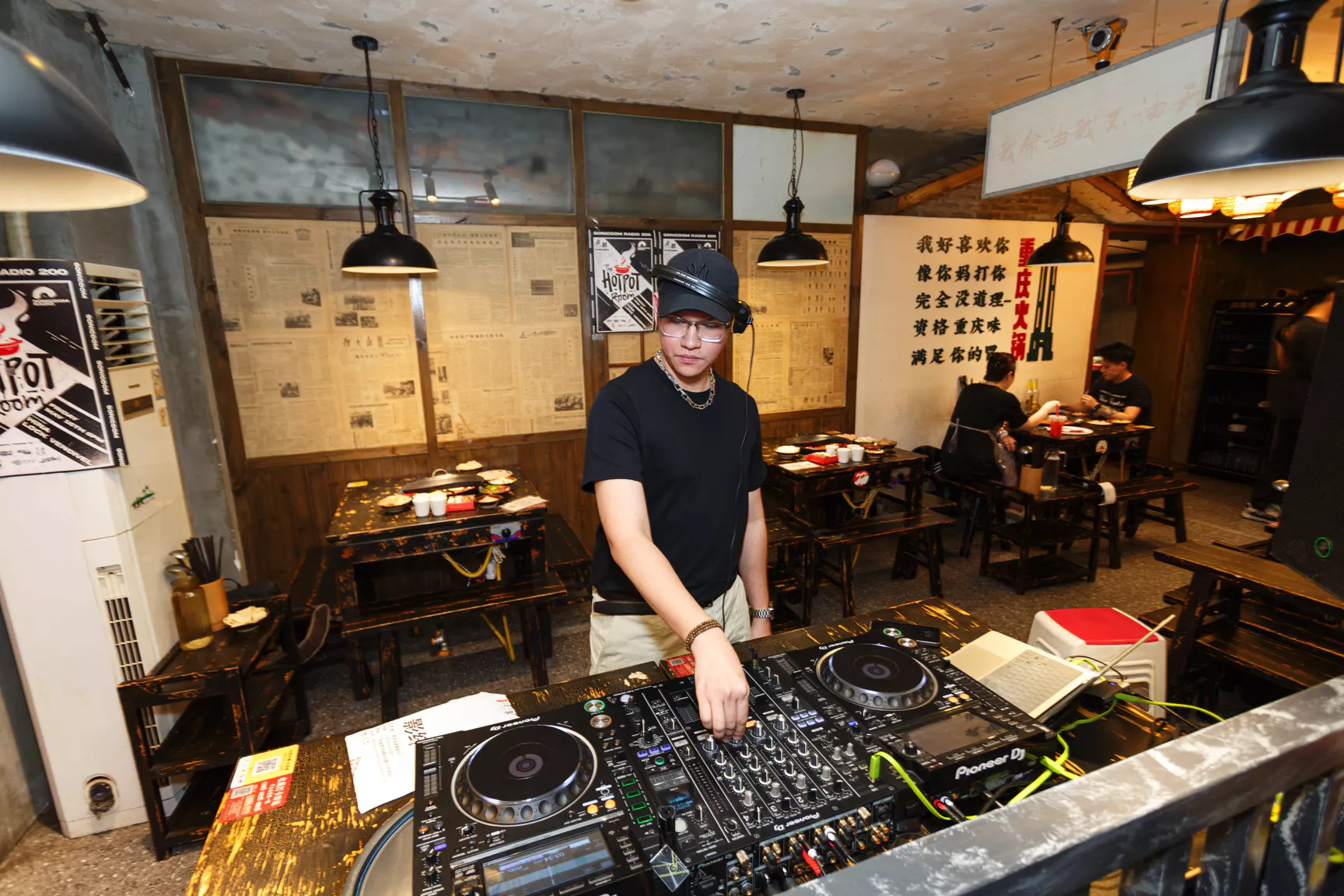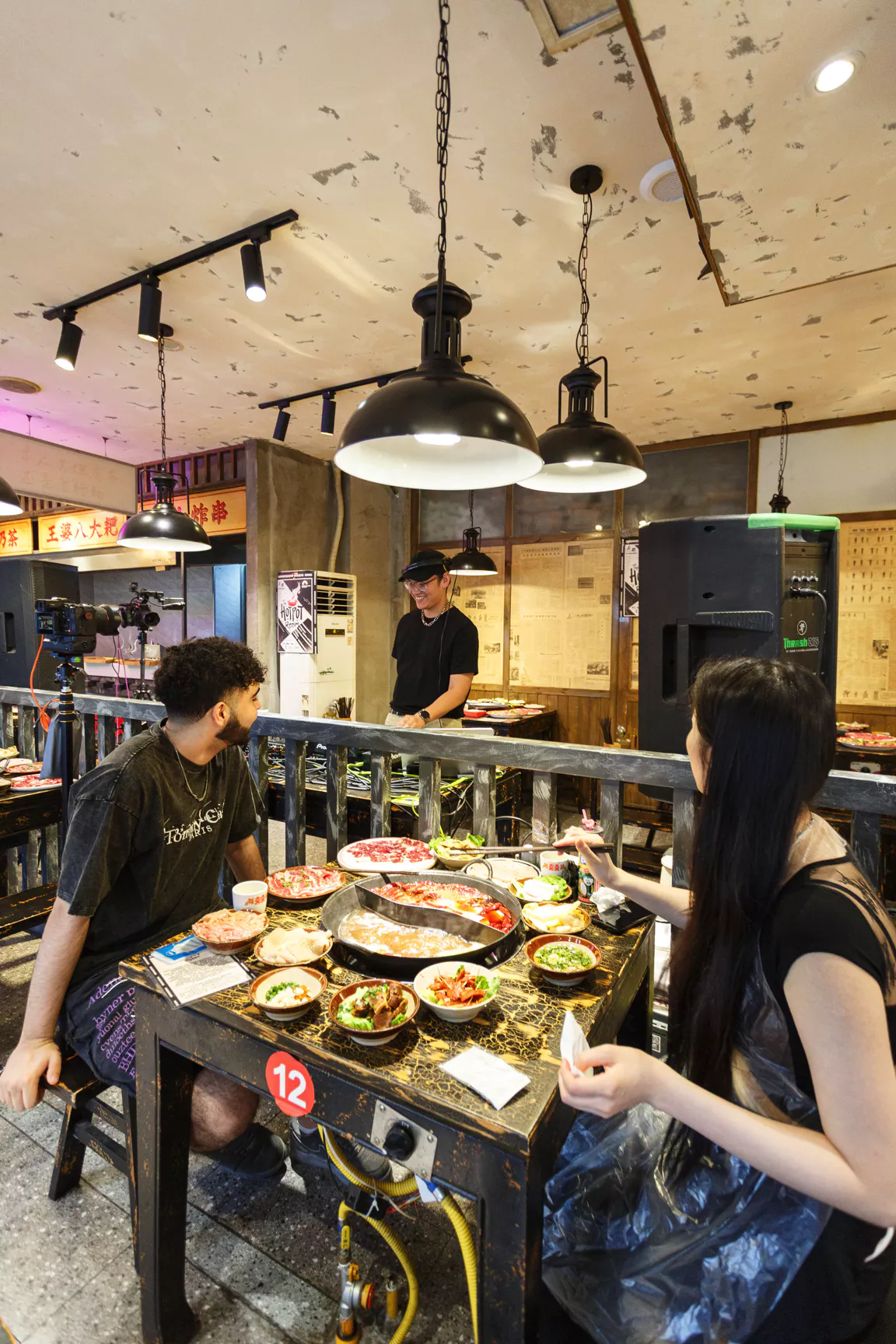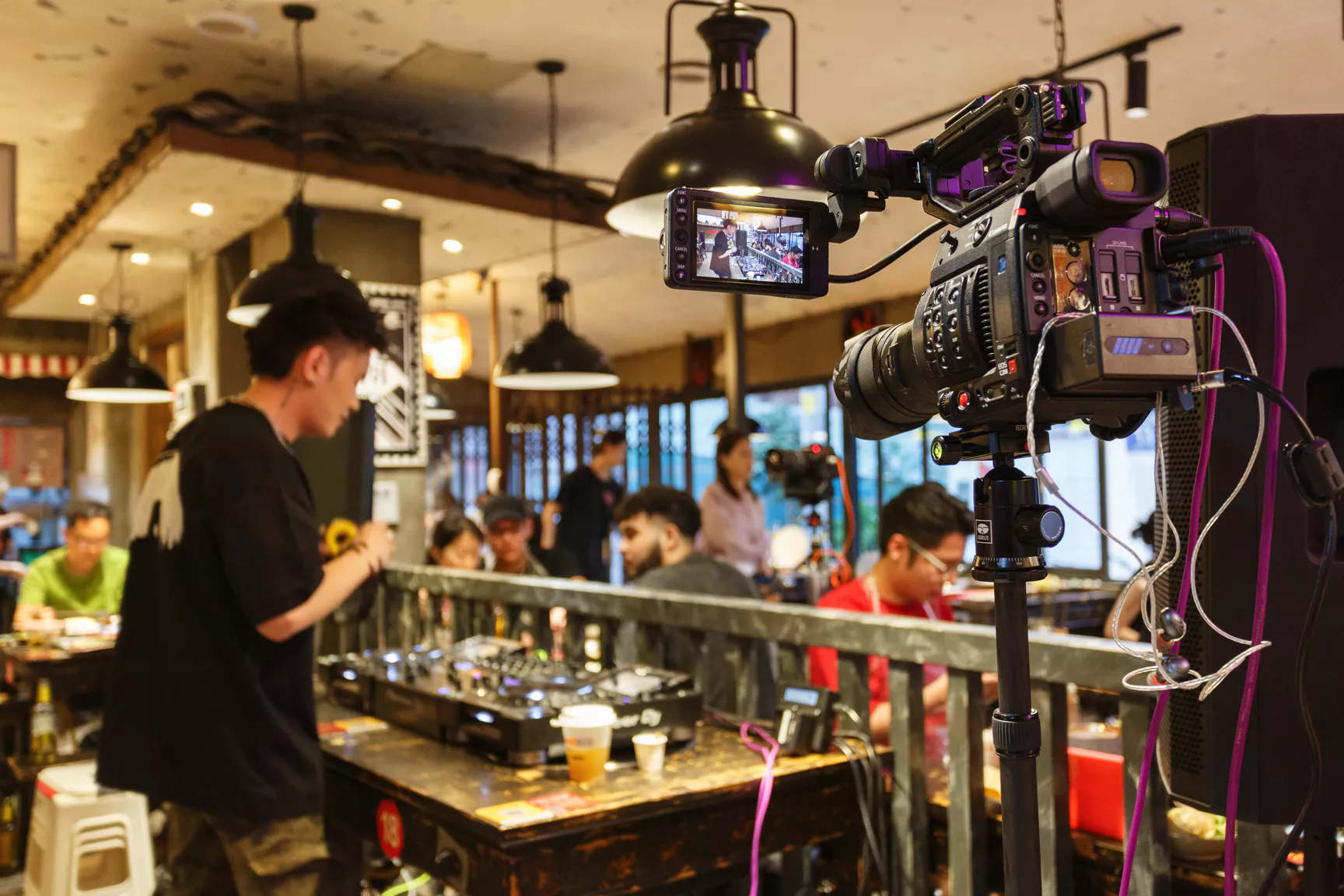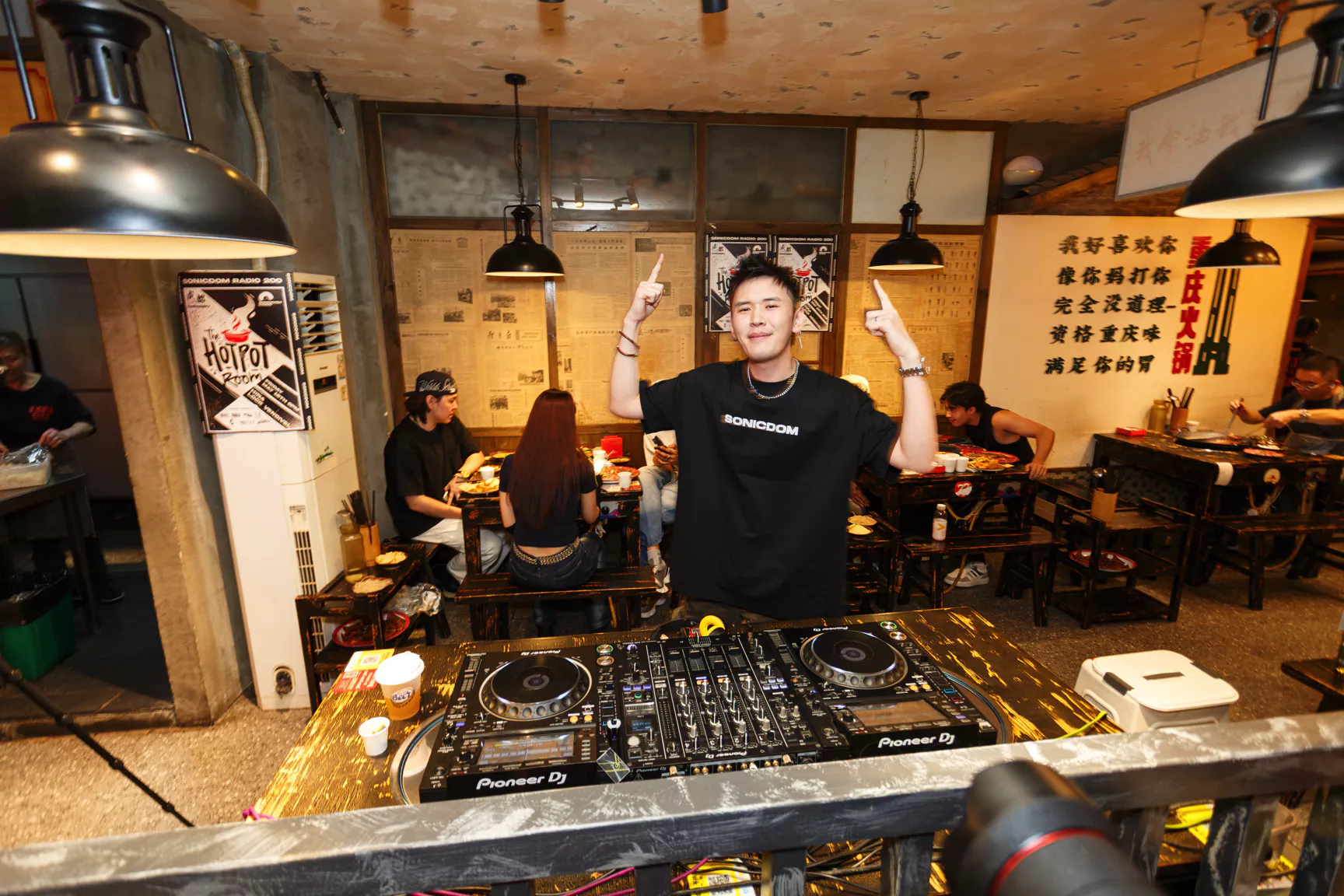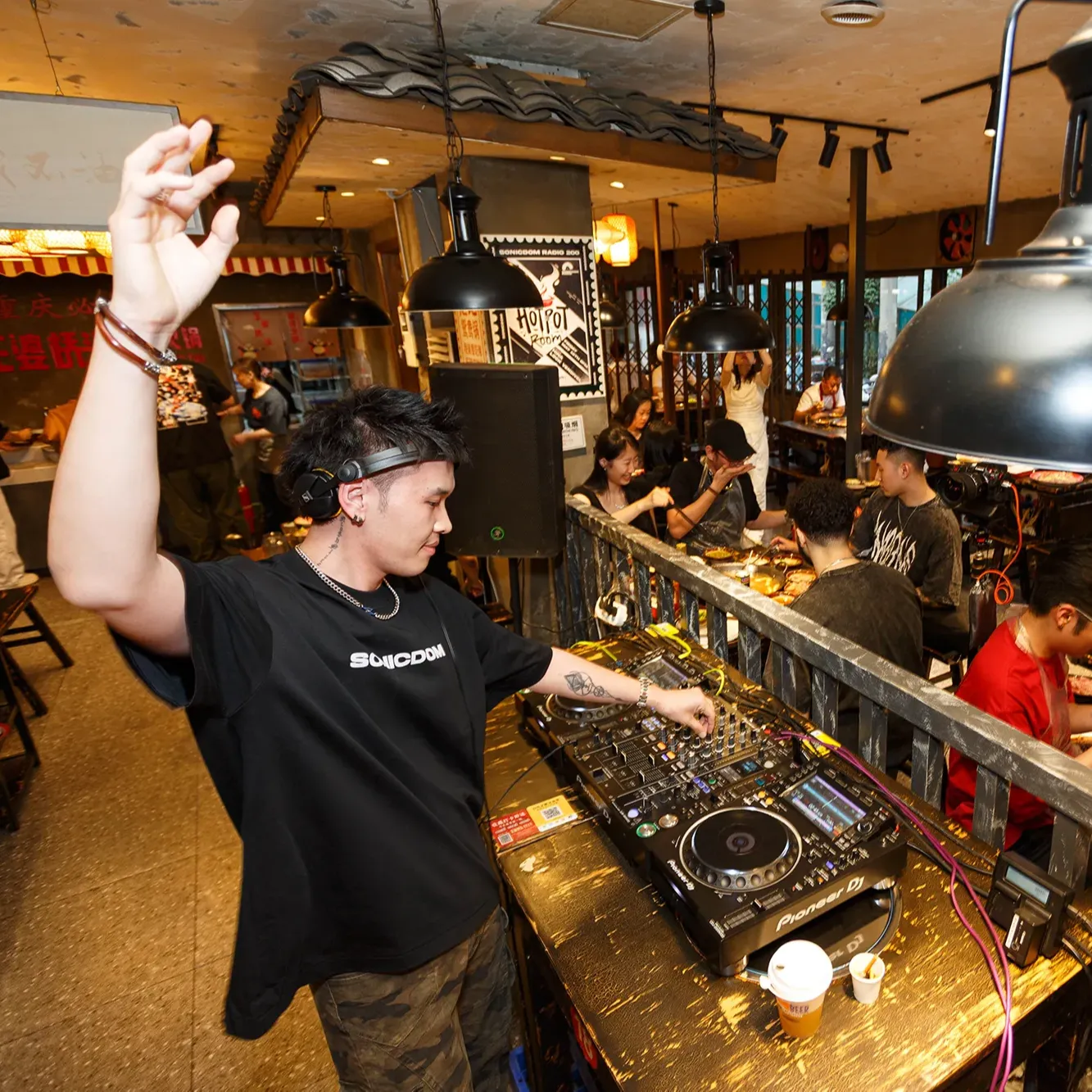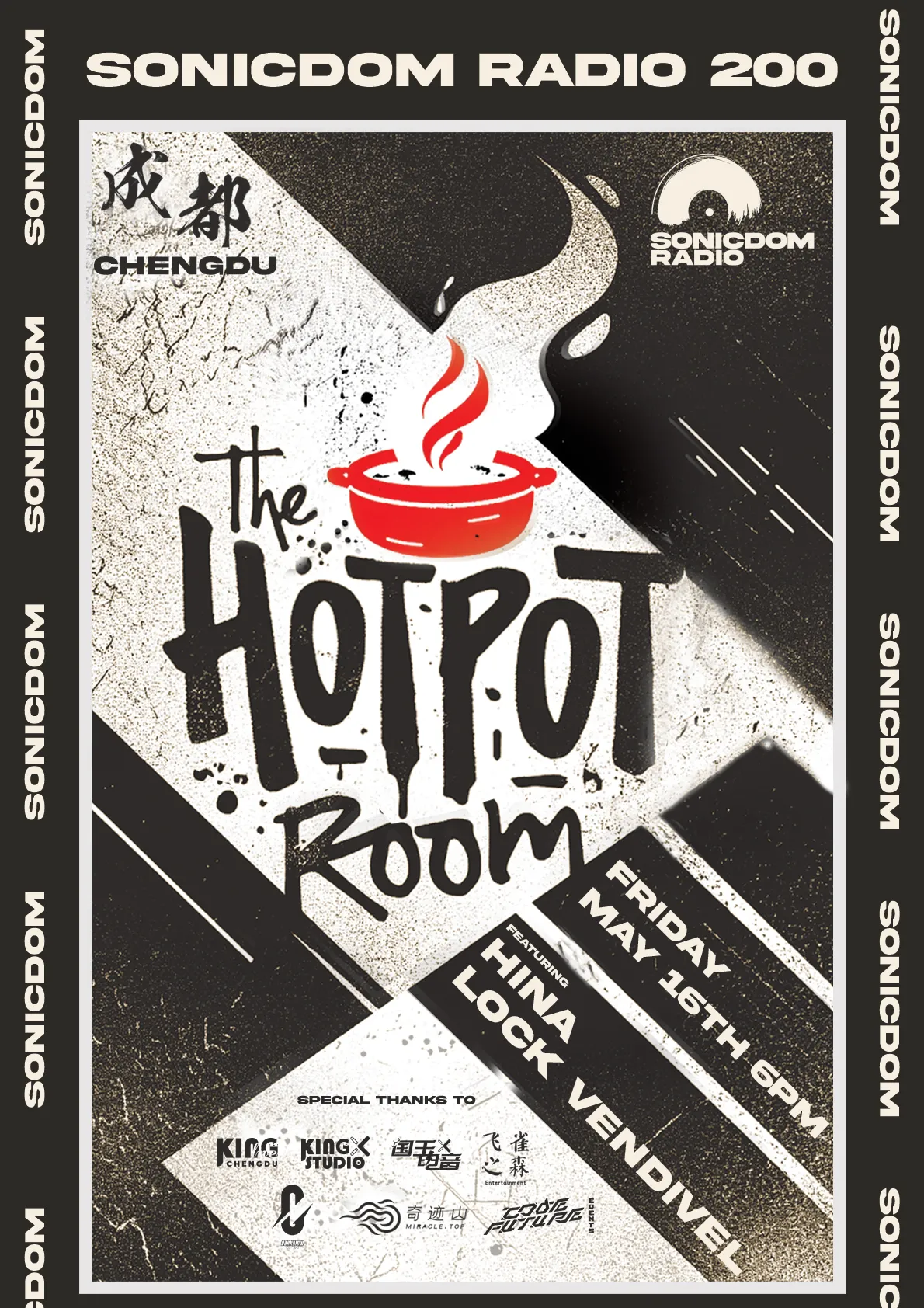
The Hotpot Room:
A Spicy Fusion of Techno and Hotpot Culture in Chengdu
Sonicdom Radio Celebrates Its 200th Episode with China’s Most Unconventional Rave
The New Mike 2025/5/26
On the evening of May 16, 2025, Chengdu’s electronic music scene witnessed one of its boldest experiments yet: Sonicdom Radio’s 200th episode, titled “The Hotpot Room,” took place inside a bustling hotpot restaurant—Wangpoqiao Jiuyanqiao Hotpot—blurring the lines between culinary tradition and club culture.
This event, a wild intersection of spicy cuisine and driving beats, quickly went viral across social media platforms and sparked widespread discussion throughout the electronic music community in China and beyond.
Why Host a Rave in a Hotpot Restaurant?
As one of the key cities in China’s underground music circuit, Chengdu has long been a hub for electronic innovation. However, as traditional club and festival formats begin to plateau, Sonicdom sought to craft a venue experience that would offer maximum cultural contrast and sensory immersion.
By fusing the local symbol of communal dining—hotpot—with pulsating techno rhythms, the team created a new kind of rave space. The DJ booth stood next to bubbling soup pots, and chili-scented steam filled the room alongside heavy basslines. The crowd wasn’t typical nightlife goers either—they were DJs, producers, and music professionals from across the country, sharing music, food, and ideas in equal measure.
Two DJs, One Boiling Dancefloor
“The Hotpot Room” wasn’t just a celebration—it was a statement.
The event’s success reverberated beyond the venue walls. On Weibo, TikTok, and YouTube, clips from the night spread rapidly, with hashtags like #HotpotDJ and #ChengduRave trending across platforms. The concept caught the attention of both industry insiders and curious audiences alike.
From an industry perspective, the night embodied the shift from club-centric paradigms to decentralized, experience-driven raving. It was an answer to the question: What’s next for China’s electronic music culture? Sonicdom’s approach proved that new spaces—both physical and cultural—can breathe fresh life into the scene.
A Cultural Statement Beyond the Party
STORM Festival's fall mirrors the broader decline of China’s large-scale EDM events. Between 2016 and 2019, China hosted over 100 electronic music festivals annually, many backed by municipal governments or private capital. Creamfields, Ultra, and local editions of Electric Jungle surged in popularity.
Yet by 2020, the infrastructure collapsed. Regulatory restrictions, lack of localized curation, weak grassroots support, and over-saturation led to a sharp decline. Reports from PwC and Mixmag China attribute the fall to an over-reliance on imported formats and a failure to adapt to regional audiences. Post-COVID, few festivals fully returned. Unlike Europe’s organic rave ecosystems, China’s top-down festival model proved fragile and unsustainable.
Powered by Community and Collaboration
The event was organized by Sonicdom, and made possible through collaboration with several influential brands and collectives, including:
• Forest of Swallows (飞雀之森) — a leading Chengdu-based party collective
• MiracleTop (奇迹山) — its parent creative incubator
• King of Electronic (国王电音) — a prominent label and event brand in China’s dance music scene
This multilayered partnership model showcased how brands can join forces to push creative boundaries and build stronger, more connected communities.
Looking Ahead
The massive success of “The Hotpot Room” affirms not just the potential of Chengdu’s electronic music ecosystem, but also the growing appetite for experiential, cross-cultural expressions of rave culture.
Sonicdom has announced plans to continue exploring non-traditional venues and hybrid events, aiming to reshape how electronic music is experienced—and where.
Keywords
Chengdu electronic music, Sonicdom Radio 200, hotpot DJ rave, The Hotpot Room, underground China rave, Hina DJ, Lock Vendivel, Forest of Swallows, MiracleTop, King of Electronic, Chinese techno party, China music scene 2025, experiential clubbing Asia
